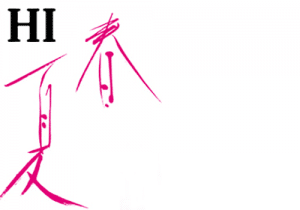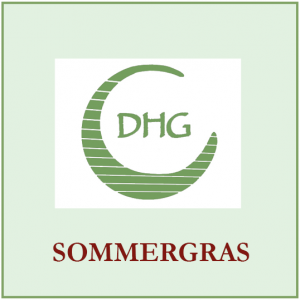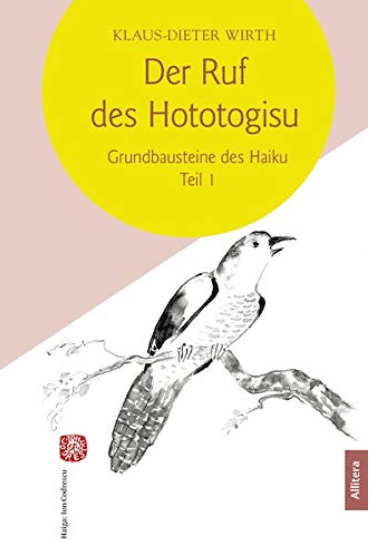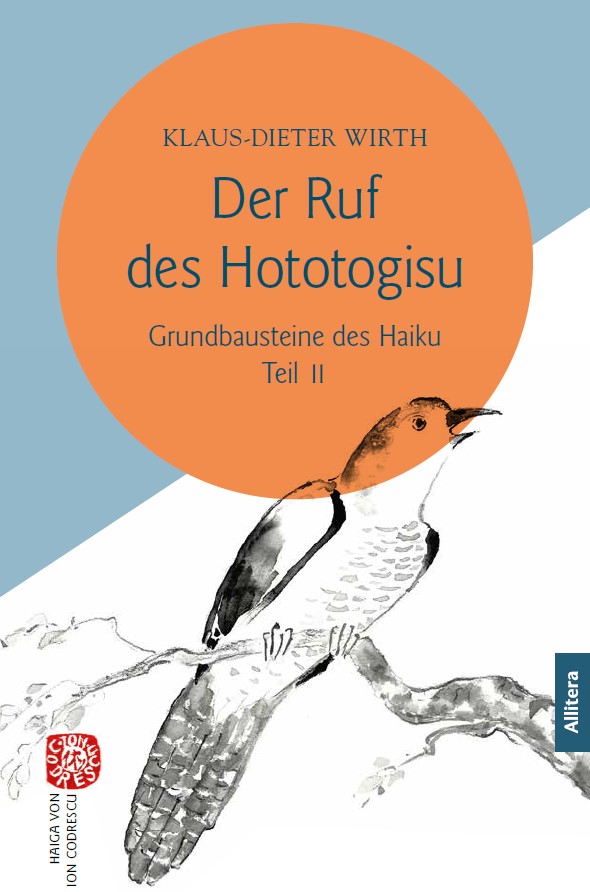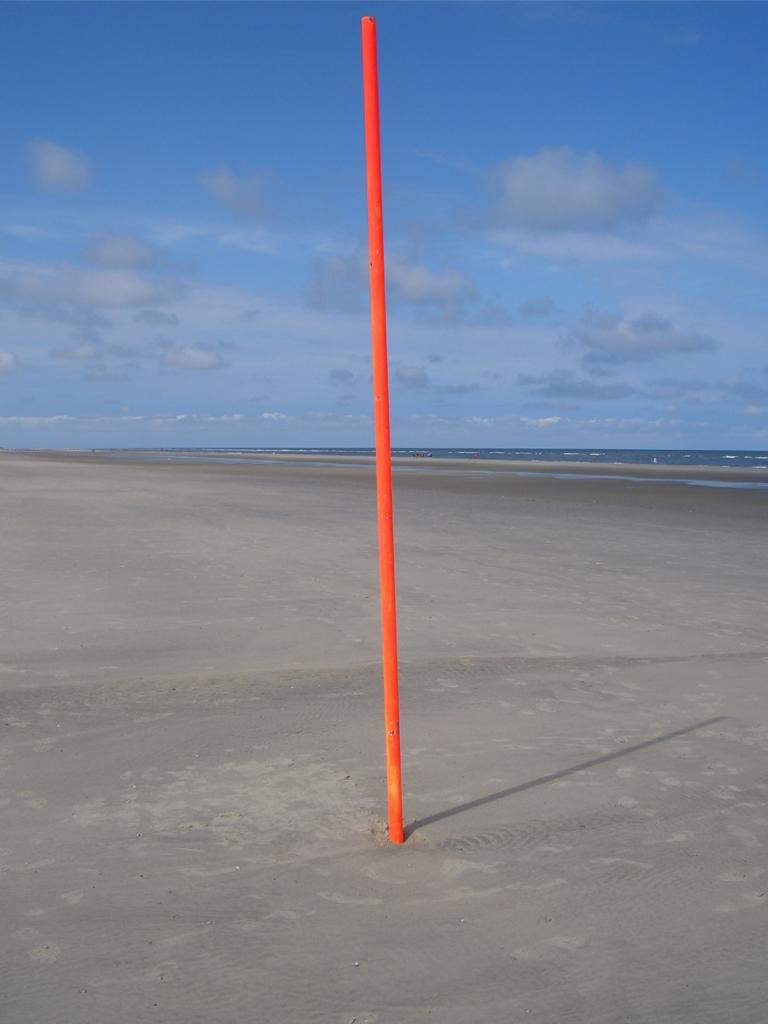Es wurden insgesamt 237 Haiku von 82 Autoren und 60 Tanka von 26 Autoren für diese Auswahl eingereicht. Einsendeschluss war der 15. Januar 2023. Diese Texte wurden vor Beginn der Auswahl von mir anonymisiert.
Jedes Mitglied der DHG hat die Möglichkeit, eine Einsendung zu benennen, die bei Nichtberücksichtigung durch die Jury auf einer eigenen Mitgliederseite veröffentlicht werden soll.
Eingereicht werden können nur bisher unveröffentlichte Texte (gilt auch für Veröffentlichungen in Blogs, Foren, inklusive die Foren auf HALLO HAIKU, sozialen Medien und Werkstätten etc.).
Bitte keine Simultan-Einsendungen!
Bitte alle Haiku/Tanka unbedingt gesammelt in einem Vorgang in das Online-Formular auf der DHG-Webseite HALLO HAIKU selbst eintragen:
Ansonsten per Mail an: auswahlen@sommergras.de
Der nächste Einsendeschluss für die Haiku-/Tanka-Auswahl ist der 15. April 2023.
Jeder Teilnehmer kann bis zu sechs Texte – drei Haiku und drei Tanka – einreichen.
Mit der Einsendung gibt der Autor/die Autorin das Einverständnis für eine mögliche Veröffentlichung in der Agenda der DHG und auf http://www.zugetextet.com/sowie für eine mögliche Vorstellung auf der Website der Haiku International Association.
Haiku-Auswahl der HTA
Die Jury bestand aus Dagmar Westphal, Hildegard Dohrendorf und Sebastian Salie. Die Mitglieder der Auswahlgruppe reichten keine eigenen Texte ein.
Alle ausgewählten Texte – 25 Haiku von 21 Autoren – werden in alphabetischer Reihenfolge der Autorennamen veröffentlicht. Es werden maximal zwei Haiku pro Autor aufgenommen.
„Ein Haiku, das mich besonders anspricht“ – unter diesem Motto besteht für jedes Jurymitglied die Möglichkeit, bis zu drei Texte auszusuchen (noch anonymisiert), hier vorzustellen und zu kommentieren. Diesmal wurden 2 Texte ausgewählt.
Da die Jury sich aus wechselnden Teilnehmern zusammensetzen soll, möchte ich an dieser Stelle ganz herzlich alle interessierten DHG-Mitglie-der einladen, bei kommenden Auswahl-Runden als Jurymitglied mitzuwirken.
Peter Rudolf
Ein Haiku, das mich besonders anspricht
Mandarinenduft
und das Knacken der Nüsse
im LuftschutzbunkerEva Beylich
Romantisch und besinnlich beginnen die beiden ersten Zeilen: Wenn die Nüsse reifen und die ersten Mandarinen auf den Markt kommen, verraten sie uns die Zeit im Jahr, von der das Haiku erzählt: Wir sind im späten Herbst Ende November oder Anfang Dezember.
Nur eine kurze Atempause als Zäsur ist uns vergönnt zwischen der zweiten und dritten Zeile, bevor unerwartet mit voller Wucht das Wort „Luftschutzbunker“ in die Stille der Szenerie knallt.
Kein Laut zwischen den Bombenangriffen, nur das Knacken der Nüsse, und in der Enge der Duft von Mandarinen. Wer oder wie viele Menschen sich im Bunker aufhalten, wird nicht gesagt – und doch sehen wir sie vor uns: zusammengerückt und die Köpfe gesenkt. Und eine(r) verteilt Mandarinen und Nüsse. Es ist Advent – und ein Hauch von Hoffnung breitet sich aus mitten im Krieg. All meine Sinne spricht es an, dieses Haiku in klassischer Silbenanordnung 5-7-5.
Es ist zeitlos wie leider auch aktuell.
Ausgesucht und kommentiert von Dagmar Westphal
Draußen der Schneesturm –
unbeweglich am Fenster
die schwarze Katze.Yann Brunotte
Diesen Text nehme ich auf den ersten Blick als winterliches Spiel der Gegensätze wahr: draußen der lebensfeindlich-kalte Sturm, aber in Bewegung – drinnen die lebendig-warme, jedoch im Stillstand verharrende Katze; dazu die Szenerie in schwarz-weiß bzw. weiß-schwarz. So aufgeräumt und pittoresk das Bild zunächst erscheinen mag, so geheimnisvoll und inspirierend ist es bei genauerer Betrachtung.
Schließlich wird mit schwarzen Katzen allerlei Aberglaube verknüpft. Jahrhundertelang wurden solche Tiere in weiten Teilen des christlichen Europa als „Teufelswesen“ gemieden, wenn nicht gar verfolgt und getötet, und bis heute hält sich die Vorstellung, eine schwarze Katze bringe Unglück. Mancherorts, so etwa in Japan oder England, gelten sie dagegen als Glücksbringer, teilweise insbesondere für Frauen. So herrscht einem englischen Sprichwort zufolge kein Mangel an Freiern, wenn die Hauskatze schwarz ist. Auch im vorliegenden Haiku scheint die Färbung des Tieres wichtig zu sein, wird sie doch ausdrücklich erwähnt. Ein Verweis auf eine irrationale Sphäre schwingt zumindest mit und öffnet den Text – passend zur geschilderten Jahreszeit – für mystische Lesarten.
Ob man solchen Überlegungen folgen mag oder lieber nicht: Es stellt sich mir auf jeden Fall die Frage, ob die Katze angesichts der Witterungsbedingungen glücklich ist, in Sicherheit zu sein – wir gehen davon aus, dass der Text so gemeint ist, dass sie sich im Haus und nicht draußen befindet, was dem Haiku ansonsten einen weitaus weniger ansprechenden Charakter verliehe – oder ob sie eher die Unmöglichkeit der Mäusejagd still bedauert und diese Phase stoisch abwartet. Die Antwort bleibt wohl ihr Geheimnis, denn wer kann schon in den Kopf einer Katze schauen? Aber die Frage ist es wert, gestellt zu werden, und zwar auch an mich selbst: Wie gehe ich mit Situationen um, die mich in meiner Handlungsfreiheit einschränken und an denen ich nichts ändern kann? Insofern taugt mir das in dem Haiku gezeigte Bild als Anregung zum Nachdenken und als Resilienzverstärker für stürmische Zeiten – und die schwarze Katze erweist sich somit eher als Glücksbringer denn als dämonische Gestalt.
Ausgesucht und kommentiert von Sebastian Salie
Die Auswahl
Augen wie Sonnen
Blütenduft weht mir ums Herz
Ein Hauch von FrühlingDaniel Behrens
löchriger Teppich
aus verfaulten Herbstblättern
GedächtnislückenEva Beylich
Mandarinenduft
und das Knacken der Nüsse
im LuftschutzbunkerEva Beylich
Christliche Weihnacht
in unserem Wohnzimmer
der StallgeruchHeiner Brückner
Draußen der Schneesturm –
unbeweglich am Fenster
die schwarze Katze.Yann Brunotte
auf dem Weg in
die Klinik – Vater bittet mich
zu wendenMichael Deisenrieder
Neujahrsmorgen
beim Öffnen der Tür
ein Schwall alter BlätterPetra Fischer
Die Nacht eisig und klar
nur dein Schweigen
ist kälterDieter Gebell
Sprühregen
im Briefkasten
trockene WorteMatthias Gysel
reha-zentrum
die stimme des rotkehlchens
vom bandMichaela Kiock
die Bahn fährt ab
ihr Lächeln im Zugfenster
bleibt für immerGérard Krebs
Weihnachtskugeln
das Leuchten in den Augen
der DreijährigenGérard Krebs
Im Krankenzimmer
fächelt das kleine Mädchen
der Puppe Luft zu.Moritz Wulf Lange
der Bombentrichter
tief im Wald
blühen BuschwindröschenEva Limbach
Mondsichel
das lange Warten
auf seine AntwortEleonore Nickolay
Winterweg
Hand in Hand
unsere WärmeEleonore Nickolay
einzelhaft
die fliege am fenster
dreht ihre rundenLudmilla Pettke
Haushaltsauflösung
die Frau im Flur trägt das Parfum
meiner NachbarinKamil Plich
fremde Stadt
der Mann ohne Obdach
wünscht frohe WeihnachtEvelin Schmidt
im kahlen Birnbaum
die Katze und die Krähe
Auge in AugeHelga Schulz Blank
beim Klassentreffen
die erste Liebe
ApfelblütenduftMarie-Luise Schulze Frenking
Mittsommernacht
Das kurze Schweigen zwischen
Fröschen und VögelnMonika Seidel
Abreise –
der Rinnstein gelb
von BlütenstaubAngelica Seithe
Flohmarkt
ein Händler vertrödelt
die ZeitFriedrich Winzer
Morgenbrise
eine Spinne schwingt
in den TagFriedrich Winzer
Tanka-Auswahl der HTA
Silvia Kempen und Martin Thomas wählten 9 Tanka von 7 Autoren aus. Die ausgewählten Texte werden in alphabetischer Reihenfolge der Autorennamen veröffentlicht. Es werden maximal zwei Tanka pro Autor aufgenommen.
„Ein Tanka, das mich besonders anspricht“ – unter diesem Motto besteht für die beiden Jurymitglieder die Möglichkeit, bis zu drei Texte auszusuchen (noch anonymisiert), hier vorzustellen und zu kommentieren. Diesmal wurde ein Text ausgewählt.
Ein Tanka, das mich besonders anspricht
aus vielen Sommern
setzt das Holz die Wärme frei
im Feuerofen
in wenigen Minuten
wird Jahr um Jahr zu AscheMarie-Luise Schulze Frenking
Wer kennt sie nicht, die wohlige Wärme eines Kamins oder Feuerofens im Winter? Der klirrenden Kälte die Stirn bietend, schaut man wie hypnotisiert in die lodernden Flammen und vergisst Zeit und Raum. Die Luft erfüllt vom Geruch des brennenden Holzes, kommt nur dann Bewegung ins Spiel, wenn Scheite nachgelegt werden müssen. Worte fallen keine, sodass man sich in Gedanken immer weiter vom Hier und Jetzt entfernt. Im Zustand der Transzendenz verschwimmen schließlich die Grenzen zur Realität, taucht man ein in das Urbewusstsein vom ewigen Kreislauf des Lebens.
Das vorliegende Tanka beschreibt jenen Zustand der Transzendenz und die mit ihm in Verbindung stehenden Gefühle und Gedanken in objektiv-sachlicher Weise. Kein Wort zu viel, kein Wort zu wenig, lebt es insbesondere durch seine motivisch (Sommer – Wärme – Holz – Feuer – Asche) und temporal (viele Sommer – wenige Minuten – Jahr um Jahr) geknüpften Assoziationsketten, die es als stilistisch durchdacht offenbaren. Dabei dient das Bild des über viele Jahre gewachsenen Baumes, der binnen weniger Augenblicke zu Asche zerfällt, als Metapher für die Vergänglichkeit allen Seins.
Gut möglich, dass manch eine Leserin oder manch ein Leser das Gedicht als überladen empfindet. Meines Erachtens unterstreicht die erzeugte sprachliche Schwere die vorhandene inhaltliche Tiefe jedoch in einem ansprechenden Maß. Zumal das Gedicht bei genauerem Blick keineswegs nur einen melancholischen Fatalismus proklamiert, sondern im Gegenteil die Notwendigkeit des Übergangs betont. Ohne den Tod des einen wäre das Leben des anderen nicht denkbar. Anders gesagt: Alle Lebewesen – ob Pflanze, Tier oder Mensch – befinden sich in einem ewig währenden, voneinander abhängigen Zyklus, der von der Geburt über das Heranwachsen bis hin zum Tod reicht.
Am Ende könnte man somit durchaus auch eine gewisse Dankbarkeit – oder zumindest den Aufruf zu eben dieser – aus dem Text herauslesen. Eine Dankbarkeit, die vielen von uns – und hier schließe ich mich explizit mit ein – angesichts des maßlosen Konsums von Ressourcen jeglicher Art abhandengekommen ist. So täte man gut daran, wie die Autorin oder der Autor des vorliegenden Gedichts, öfter einmal innezuhalten und sich zu vergegenwärtigen, was man da gerade im Ofen verfeuert, was man da auf seinem Teller vor sich liegen hat, und welche Rolle man selbst in diesem Kreislauf spielt bzw. einnehmen möchte.
Ausgesucht und kommentiert von Martin Thomas
Heimkehr
nach durchzechter Nacht
trifft mich
der vorwurfsvolle Blick
meines HundesFriedrich Winzer
Als Einstieg in diesem Tanka zunächst die Information: „Heimkehr / nach durchzechter Nacht“. Dann das zentrale Element „trifft mich / der vorwurfsvolle Blick“. Wenn man darüber nachdenkt, wessen Blick das sein könnte, würde man annehmen, es wäre der/die Lebenspartner/in. Wird jetzt ein Streit stattfinden? Hängt dann der Haussegen schief?
Die Auflösung ist überraschend, es ist der Hund. Der beste Freund des Menschen. Allgemein wird vermutet, dass Menschen in die Blicke von Hunden etwas hineininterpretieren, aber es gibt eine Studie über die Gesichtsmuskulatur von Hunden und Wölfen, die etwas anderes besagt. Es wurde festgestellt, dass nur Hunde einen speziellen Muskel besitzen, der die Braue hebt. Dadurch erscheinen die Augen größer, kindlicher, und der Ausdruck von Traurigkeit ist möglich.
Wer Hundeblicke kennt, der weiß, wie nachhaltig sie wirken können. Der/die Heimkehrer/in wird diesen Blick so leicht nicht vergessen und beim nächsten Mal vielleicht nicht so lange fortbleiben.
Ausgesucht und kommentiert von Silvia Kempen
Die Auswahl
die Kiefer und ihr Gärtner
die Zeit hat beide
krumm gemacht
ihre Schatten, verzweigt
wie aus einem StammStefanie Bucifal
ich packe
meine Zeitkapsel …
mit Rotwein
dem Weißen Album
und dirGabriele Hartmann
nun, da du hier bist
fehlt mir die Erinnerung
an das, was hätte sein können,
wäre alles nur ein Traum
gebliebenGabriele Hartmann
vor dem ostbahnhof
kostenloser bibelkurs –
vier junge frauen
arbeiten an meiner
orientierungBernhard Haupeltshofer
charmant und wortgewandt
hinter dem Rednerpult …
die Kollegin meint,
er spreche nie
mit FrauenBirgit Heid
aus vielen Sommern
setzt das Holz die Wärme frei
im Feuerofen
in wenigen Minuten
wird Jahr um Jahr zu AscheMarie-Luise Schulze Frenking
der Tag räuspert sich
und klopft an Fensterscheiben
aus seinen Höhlen
kriecht – noch etwas verschlafen –
das StadtlebenBrigitte ten Brink
ein glückliches Paar
beim Hochzeitswalzer
für einen Moment
werde ich zum Traumtänzer
im RollstuhlFriedrich Winzer
Heimkehr
nach durchzechter Nacht
trifft mich
der vorwurfsvolle Blick
meines HundesFriedrich Winzer
Sonderbeitrag von René Possél
René Possél hat aus allen anonymisierten Einsendungen ein Haiku ausgesucht, das ihn besonders anspricht.
Flohmarkt
ein Händler vertrödelt
die ZeitFriedrich Winzer
Dies scheint auf den ersten Blick ein Haiku, das vom Spiel mit der Wortfamilie „Trödel – trödeln“ lebt. Schon das Setting mit „Flohmarkt“ in der ersten Zeile lenkt die Gedanken in Richtung „Trödel“. Ein Flohmarkt dient dem Verkauf alter, ausgedienter, unnützer Sachen – Trödel eben. Die zweite Zeile verstärkt das mit dem Prädikat „vertrödeln“, das heißt, Zeit ungenützt verbringen, vergeuden. Dass ein Händler mit „Trödel“ also „trödelt“, ist irgendwie naheliegend und macht vordergründig das Wortspiel und den Schmunzelwert des Haiku aus.
Tatsächlich scheint mir das Haiku auch ein bemerkenswerter Kommentar zum Thema „Zeit“, dem letzten Wort in der dritten Zeile. Auf Flohmärkten ausgediente und „aus der Zeit gefallene, unnütze Sachen“ zu verkaufen, ist ohnehin ein Statement zum Thema „Zeit“. Der „Trödel“ macht die Vergänglichkeit und Veraltung der Dinge in der Zeit und damit die Dialektik der Zeit sichtbar: Was gestern noch modern und „up to date“ war, ist heute passé, veraltet.
„Je schneller (aber) das Neueste zum Alten wird, desto schneller
veraltet auch das Veralten selbst, und umso schneller kann Altes
wieder zum Neuesten werden.“
(Odo Marquardt)
Wer die Dialektik der Dinge in der Zeit erkannt hat und damit handelt, kann im „trödelnden“ oder auch gelassenen Umgang mit der Zeit die Dialektik auch im eigenen Verhalten deutlich machen. Ein philosophisches Haiku.


